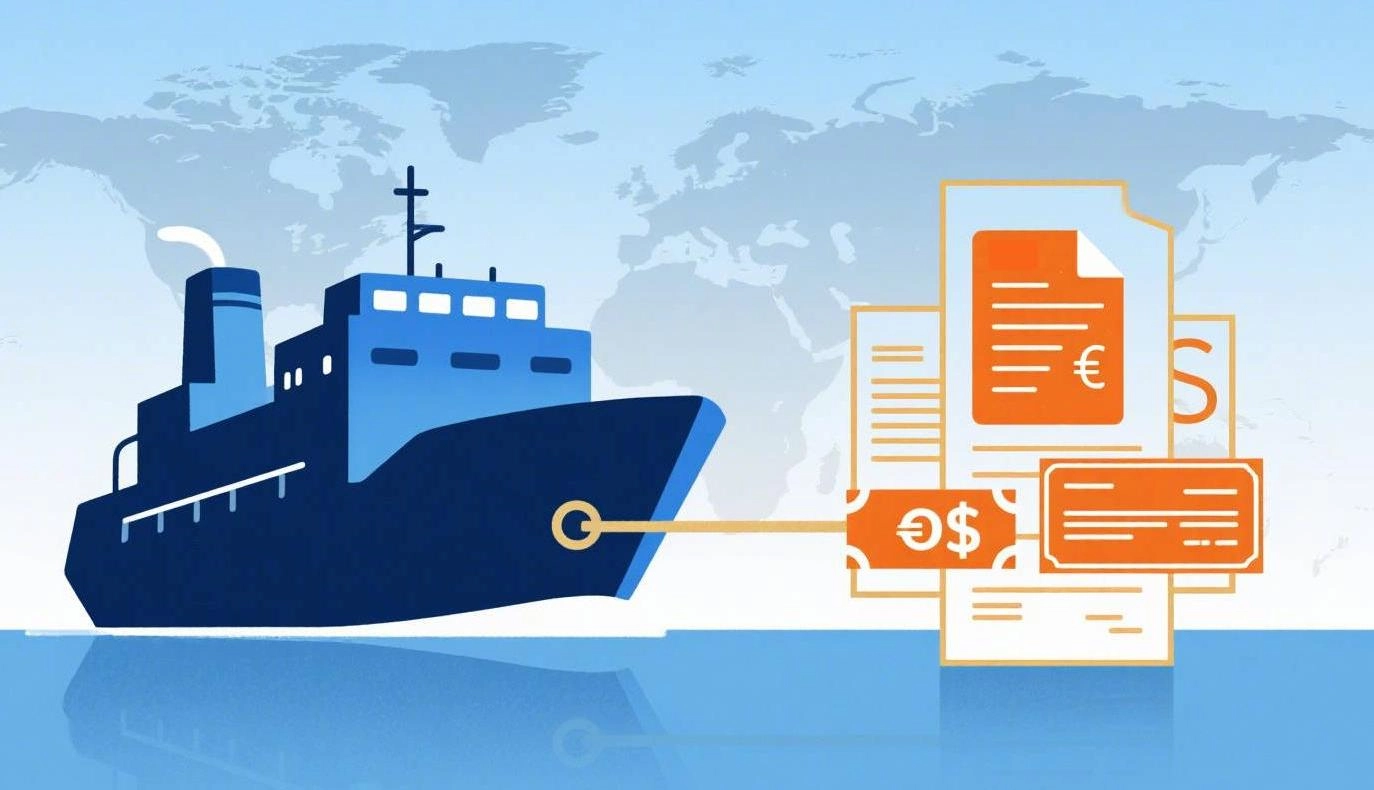
International trade involves complex financial setups to protect buyers and sellers. One common method is Documents Against Payment (D/P). This payment approach is widely used in cross-border deals. It helps exporters keep control over goods until they receive payment. It also assures importers they will get the right documents to claim their shipment. For Amazon sellers sourcing products from abroad, especially China, understanding D/P is crucial. It helps manage risks and ensures smooth purchasing.
Documents Against Payment (D/P) is a type of documentary collection. The exporter ships goods and sends shipping and commercial documents to their bank. The bank sends these to the importer’s bank. The documents are released only when the buyer pays in full. This ensures the importer cannot take the goods without paying first.
Exporter (Seller) – Ships the goods and starts the D/P process.
Importer (Buyer) – Pays to receive the shipping documents.
Remitting Bank – The exporter’s bank that sends documents to the collecting bank.
Collecting Bank – The importer’s bank that releases documents after payment.
Unlike Letters of Credit (L/C), which involve more bank commitment and higher costs, D/P is simpler and cheaper. However, it offers less security than L/Cs. Banks do not guarantee payment. They only handle documents.
A D/P transaction starts when the exporter and importer agree on D/P terms in their sales contract. The exporter ships the goods and gathers all needed documents. These include the bill of lading, invoice, packing list, and certificate of origin.
The exporter submits these documents to their bank, called the remitting bank. The remitting bank sends them to the importer’s bank, known as the collecting bank. The instructions are clear: release documents only after payment.
The collecting bank notifies the importer when the documents arrive. The importer cannot access the goods yet. The bank holds control until full payment is made. Once the importer pays, the bank releases the documents.
With the original documents, the importer can present them to customs or port authorities. This allows them to claim the goods. The process ensures payment and document release happen together. It gives exporters security and importers confidence in receiving documents.
For exporters, D/P offers security by keeping control over documents until payment is received. It reduces reliance on buyer promises or open credit risks.
For importers, D/P is more flexible than Letters of Credit. It still allows access to goods through verified banking channels.
X Sourcing ensures your products are safe and delivered quickly to FBA warehouses. This aligns well with sellers who prefer secure trade terms like D/P when sourcing globally.
Exporters face risks if buyers refuse to pay when documents are presented. This can leave goods stranded. It may require costly re-export or resale efforts. Banks do not check document accuracy or guarantee payments in D/P arrangements.
Even with control over documents, checking the buyer’s reliability reduces risks. Do this before agreeing to a D/P transaction.
Our team knows competitive prices for products made in China. We negotiate to get the best deals. Apply the same care when assessing trading partners’ financial stability.
Ensure all original bills of lading are properly consigned. This prevents their use without your approval through banking channels.
Include specific clauses about payment timelines in the sales contract. This avoids disputes during document handling or customs clearance.
Stay in touch with your remitting bank. Discuss documentation needs, timelines, and buyer interactions during the process.
Your private agent at X Sourcing manages your project step by step. Similarly, close oversight with your bank ensures smooth D/P execution.
Have backup plans ready. These could include finding other buyers or arranging return logistics. This helps if a buyer refuses payment after shipment.
Buyers may delay payments or refuse documents due to cash flow problems or quality disputes. To handle this:
Use third-party inspection services before shipping.
Keep clear communication records with buyers.
Include legal recourse options in your contract.
We strictly monitor supplier and product quality. This prevents delivering poor goods to your customers. High-quality shipments reduce disputes that lead to non-payment.
Mismatches between invoices and shipped items can cause delays at banks or customs. To avoid this:
Double-check all documents before submission.
Use professional agents who know international paperwork standards.
Random product sampling checks details like color and packaging. This is part of our service. Such steps reduce errors that could delay payments under D/P terms.
Different countries have unique rules for documentary collections. Some may restrict clearance without prepayment. To address this:
We arrange FBA-cooperated forwarders to ship products to fulfillment centers quickly and correctly. This includes handling complex customs documents across jurisdictions. This is critical for time-sensitive D/P transactions.
Documents Against Payment is an effective tool for exporters. It offers moderate security without the high costs of Letters of Credit. However, it requires careful coordination between sellers, banks, and logistics providers. A reliable buyer relationship is essential.
To reduce sourcing risks and benefit from cost-effective solutions, partner with X Sourcing. We offer tailored solutions for Amazon sellers. Our services include supplier audits and FBA-compliant shipping. X Sourcing provides the best suppliers and products in quality and price.
A: Choose banks based on their experience in international trade and reliability. Banks like HSBC, Citibank, and Standard Chartered are known for strong trade finance services. They offer efficient document handling and global banking networks. Select a bank with good connections in the importer’s country for smooth coordination.
A: When picking a D/P service provider, consider:
Industry experience: Choose banks or agents familiar with your product type (e.g., electronics, textiles).
Global reach: Ensure they have correspondent banks in the buyer’s region.
Cost transparency: Compare fees for document processing and exchange rates.
Customer support: Pick providers with dedicated trade finance advisors.
Research reviews and consult trade experts to find providers with a solid track record.